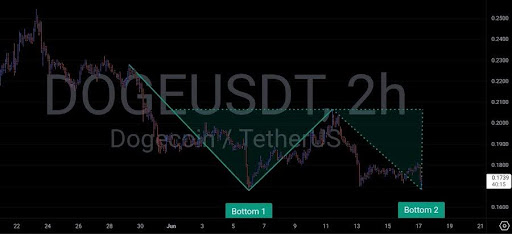Thailand Announces Crypto Tax for 5 Years—Is This Asia’s Boldest Digital Asset Play Yet?

Key Takeaways:
- Thailand exempts personal income tax on crypto gains from 2025 to 2030 for SEC-regulated transactions.
- The effort is part of an intention to establish Thailand as a regional digital asset hub in order to attract global capital.
- Officials intend to bring the country in line with standards of the OECD, and eventually could implement a VAT for transparency and expansion.
Thailand’s Cabinet has greenlighted a tax break for digital asset trading of up to five years. The move could shape Asia’s crypto landscape as it now clears a definable path ahead.
Under the new regime – essentially a tax break – and backed by a clear regulatory framework, it makes Thailand one of the true Digital Asset Hubs among global front-runners.

Read More: Thailand Eyes Bold Crypto Leap: Tourists May Soon Spend Digital Assets With Credit Cards
Thailand’s Game-Changing Crypto Tax Break
Thailand has made a clear statement: it wants to be a global center for crypto innovation and trading. The government is now officially waiving personal income tax on capital gains from digital assets—provided the transactions occur through platforms regulated by Thailand’s Securities and Exchange Commission.
The exemption will apply from January 1, 2025, through December 31, 2030. Local and foreign investors trading digital assets, including—including Bitcoin (BTC), Ethereum (ETH) and tokenized securities—through licensed operators will be able to retain 100% of their profits without having to pay personal income tax for five years.
A Move to Boost Thailand’s Digital Economy
This isn’t just about tax dedit relief, said Deputy Finance Minister Chulaphan Amornvivat – it’s about investing in infrastructure, promoting innovation and stimulating the economy generally.
“The Cabinet has approved measures to promote Thailand as a Digital Asset Hub,” Chulaphan announced on his official X account.
“This is about transparent trading, technological development, and sustainable growth.”

By eliminating capital gains taxes, the government hopes to:
- Encourage more active participation in crypto markets.
- Attract foreign capital and blockchain startups.
- Drive consumption and investment domestically.
- Generate new tax revenues through other channels like VAT.
One of the Most Forward-Looking Policies in Asia
Thailand’s new crypto tax policy sets it apart in the region. While other countries like Japan and South Korea continue to impose tight tax requirements and operational restrictions on crypto, Thailand is choosing a pro-growth, pro-innovation path.
This decision also puts Thailand ahead of major Western economies that are still debating how to regulate crypto profits. By offering a clear, long-term exemption, Thailand removes ambiguity and boosts investor confidence.
The government estimates this could increase medium-term tax revenues by at least 1 billion baht (~$27.5 million USD) through indirect economic growth.
Regulatory Clarity Attracts Capital
The policy only applies to transactions done via SEC-supervised platforms. This transparency results in greater investor trust in the system. It is also promoting trading on regulated exchanges, which in turn makes it harder for unlicensed exchanges to operate in Thailand.
This structure could also encourage overseas exchanges to establish operations in-country in order to benefit from such regulatory clarity and tax advantages.
Read More: Thailand SEC Files Lawsuit Against Crypto Exchange OKX for Operating Without License
Harmonization with Global Standards
Concurrently with the tax initiative, the Revenue Department of Thailand is getting up to speed with international standards on exchanging information, namely, those of the Organization for Economic Cooperation and Development (OECD).
This will enable:
- Better transparency for cross-border crypto flows
- Stronger enforcement of anti-money laundering (AML) policies
- Easier integration with global financial systems
By adopting OECD data exchange standards, Thailand joins G20-tier compatibility and looks even more appealing to institutional investors and fintech outfits.
Possible VAT and Future Reforms
On top of income tax, Thai officials are considering levying Value-Added Tax (VAT) on digital asset sales. Although the time frame and format of the process are still the subject of debate, the latest announcement further signals that digital assets will be integrated into Thailand’s mainstream tax ecosystem over time.
If done properly, it could:
- Create new revenue streams without discouraging investment
- Increase government oversight of crypto transactions
- Support broader use cases for tokenized real-world assets and DeFi applications
The ultimate goal is to develop a crystal clear, integrated crypto economy in which retail and institutional users are provided with fair environment and protection, free from superfluous barriers.
Industry Reactions and Market Impact
Thailand’s crypto and fintech have reacted very positively to these developments at first glance. Local platforms such as Bitkub and Zipmex are said to be gearing up to welcome both new users and partners. Here are a few things industry experts say Thailand’s new position could:
- Appeal to local crypto hubs, in particular from countries with a stifling legal framework
- Essentially make Bangkok the blockchain startup hub of Southeast Asia
- Encourage money transfers and peer-to-peer exchanges with crypto
This policy shift may also spark a regulatory ripple effect across neighboring countries such as Vietnam, Malaysia, and the Philippines, which are observing Thailand’s approach closely.
Some analysts compare Thailand’s crypto play to Dubai’s, but with a more people-centered tax strategy. Dubai has emphasized enterprise and wealth management, while Thailand is clearly focusing on inclusive growth and domestic economic stimulation.
The post Thailand Announces Crypto Tax for 5 Years—Is This Asia’s Boldest Digital Asset Play Yet? appeared first on CryptoNinjas.



